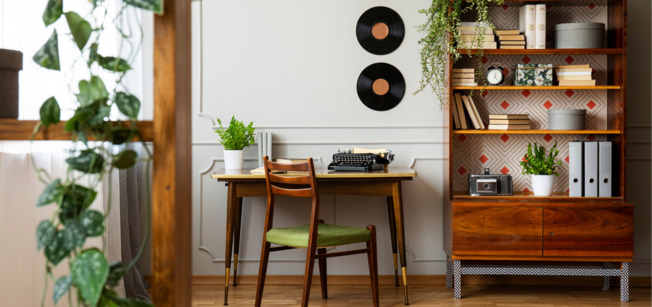
Why Does My Apartment Smell and What to Do About It?
They say your home is your castle, but that doesn’t mean you want your apartment to smell like a musty moat or worse, right?
Bad apartment smells are unpleasant, and if you don’t take care of them quickly, the problem can quickly spread throughout a small space. If you just moved into a new apartment and there are some lingering smells you can’t seem to get rid of, fear not. There are plenty of easy renter-friendly solutions to rid your place of foul odors. In this article, we highlight some of the most common apartment smells and what to do about them beyond just opening windows to get some fresh air.
How to Get Rid of Cooking Smells in a Small Apartment
Many foods that we love to cook and eat leave a bad taste in our mouths when they linger in our homes. Fish and spoilt milk are two unpleasant odors at the top of the list. Food residue in a garbage disposal or kitchen sink and rotten food in the refrigerator can also give off a pungent smell that emanates through a small apartment. If the source of your home smell seems to be coming from the kitchen, start cleaning your sink and fridge regularly.
Your trash can may also be the culprit. Make sure that there is no piece of food stuck to the inside of the trash can.
If that doesn’t do the trick, there are some simple household hacks that usually take care of these types of house smells.
White vinegar and baking soda, two inexpensive and common everyday products, have deodorizing properties and are often all you need to rid yourself of bad smells caused by foods. Sprinkle baking soda onto carpets and furniture, leave for an hour or two and then vacuum.
Fill a spray bottle with white vinegar and use it to clean countertops, appliances, cabinets, and fixtures (keep in mind that vinegar can damage marble, quartz, and natural wood).
To absorb smells, you can also place little bowls of baking soda or white vinegar throughout the room. In fact, that’s why people often leave a box of open baking soda in the fridge.
When cooking in the future, consider recipes and techniques that avoid producing lingering smells — like these 5 messs- and smell-free recipes for apartment kitchens developed by a professional.
How to Get Rid of Musty or Stale Smell in Apartment
Musty smells in your apartment may come from your (or your neighbor’s) garbage bin, nearby trash chutes, mold or mildew (in carpets, walls, floors, or ceilings), a washing machine or laundry room, or stale air (if you’ve been away for a while or had windows and doors closed for a prolonged period).
To get rid of a musty smell in your apartment, you first need to find the problem. Sniff around your trash receptacles, flooring, walls, ceiling, bathtubs, showers, and cabinets. Look for mold or mildew, damp surfaces, and pooling water.
Otherwise, if the source of the offensive smell jumps out at you, take appropriate action like opening windows, spraying air freshener, using the baking soda and vinegar trick mentioned above (which is particularly effective in garbage disposals and washers), or giving the smelly areas a deep clean with a bleach and warm water solution or other standard cleaning products. If a front-loading washer is the culprit, be sure to clean the rubber seal and leave the door open between uses.
If the musty smell is coming from a common area in the building, that’s a job for the property management company. If your apartment has central air conditioning, there may be mold in the HVAC system or air ducts. If this is the case, then you may have to call upon your building’s maintenance crew. They may need to change an air filter. You should immediately report any mold and mildew issues (or any other smells you can’t solve) to management. If the paint in your apartment peels off easily, this can be a sign of moisture build up, which can cause mold. Mold can be hidden behind drywall as well. For more information on mold, refer to our full guide.
If you suspect that the unpleasant odor in your apartment is caused by dampness, a dehumidifier may help, but, again, it’s best to enlist the help of your property manager to diagnose and resolve this kind of issue.
How to Get Rid of Pet Odors in Apartment
We love our furry friends, but sometimes, they can really stink up our apartments. If you have a dog, the key to getting rid of their odor is to bathe them regularly, clean up accidents as soon as they happen, and make sure your apartment gets plenty of ventilation. Adding an air purifier may also help with trapping odors. If you’ve tried all of this and there is still a lingering dog odor in your apartment, pull out the baking soda and vinegar again and try scrubbing any surfaces that you can smell the odor coming from.
If you are dealing with cat smells, make sure your cat has constant access to a litter box. A rule of thumb is that you should have one litter box per cat, plus one — meaning, for one cat, you’d need two litter boxes, and for two cats, you’d need at least three litter boxes. Make sure you are cleaning the litter boxes at least once a day as well. If a cat is going to the bathroom outside of a litter box, this can be an indication of a health problem and should be checked immediately.
How to Get Rid of Cigarette Smell in Apartment
For non-smokers, even a faint smoke smell can be bothersome. Thankfully, some of the same solutions that work on food odors also help neutralize the smell of smoke. It probably goes without saying, but just in case, we’ll say it anyway. In the event of really strong smells caused by smoke like a fire, call 911 and your property manager, and vacate the premises.
Assuming the smoky smell is not due to an emergency, you can try to tackle the odor by opening windows, changing the HVAC filter to improve air quality, using our baking soda hack on the carpet, and wiping down floors, walls, and other surfaces with hot water. You can also invest in an air purifier to remove smoke particles from the air.
If your apartment came furnished with drapes, spraying them lightly with white vinegar may help, but we’d recommend getting the okay from your property manager first.
Baking soda isn’t the only odor absorber you can put in bowls around your apartment. Activated charcoal also works the same way. Other common household items that are worth a try include kitty litter and coffee grinds.
How to Get Rid of Skunk Smell in Apartment
A skunk smell in your apartment could be caused by an actual skunk outside your apartment or under the building’s foundation. The good news is that this type of skunk smell usually dissipates in a day or two. But if the skunk smell happens quite frequently, it very well may be the result of cannabis wafting from a neighboring apartment.
First things first, go outside and investigate. Is the unpleasant odor coming from a specific area of the apartment building? The street? If you can’t pinpoint the source of the skunk smell, report the scent to your property manager. Likewise, if your apartment building doesn’t allow smoking and you suspect the smell comes from someone in the complex, hopefully, the property manager can nip the smell in the bud (yep, pun intended).
Note that if the skunky smell is a lingering scent from a previous tenant, the same solutions for neutralizing food and smoke smells above may help.
How to Get Rid of Gas Smell in Apartment
Gas smells can come from various sources, such as VOCs (volatile organic compounds) in paints and plastics, drains and pipes in your apartment (people often mistake sewer smells for gas odors), and household appliances (since natural gas from your appliances doesn’t smell, utility providers mix in a chemical that smells like rotten eggs).
Because many gas smells (potentially leaks) can be hazardous, call your local gas company and notify your landlord right away. Gas smells are nothing to self-diagnose. We recommend opening windows to air out your apartment after determining the gas smell isn’t coming from outside.
The Bottom Line
If your apartment smells, there may be an easy fix. For starters, take your trash out regularly, avoid microwaving fish, and keep everyday products like baking soda and white vinegar on hand to help battle odors as needed.
But remember, as effective as these household hacks can be at absorbing stink, there are some smells that signal something more serious. That’s why it’s always important to report any really foul odors to your landlord or property manager, whether sudden and severe or stubborn and lingering. The first sign of mold or mildew or whiff of gas is also cause to contact management.
Top cities
Atlanta Apartments
1,825 apartments starting at $630/month
Austin Apartments
6,133 apartments starting at $600/month
Baltimore Apartments
1,423 apartments starting at $640/month
Boston Apartments
5,609 apartments starting at $425/month
Charlotte Apartments
2,980 apartments starting at $570/month
Chicago Apartments
5,458 apartments starting at $400/month
Dallas Apartments
5,455 apartments starting at $625/month
Fort Worth Apartments
2,695 apartments starting at $695/month
Houston Apartments
5,813 apartments starting at $450/month
Las Vegas Apartments
1,016 apartments starting at $795/month
Los Angeles Apartments
12,712 apartments starting at $750/month
Miami Apartments
702 apartments starting at $1,200/month
Milwaukee Apartments
1,106 apartments starting at $475/month
New York Apartments
8,874 apartments starting at $600/month
Oakland Apartments
983 apartments starting at $850/month
Orlando Apartments
877 apartments starting at $895/month
Philadelphia Apartments
3,614 apartments starting at $500/month
Phoenix Apartments
3,461 apartments starting at $592/month
Pittsburgh Apartments
1,382 apartments starting at $590/month
Portland Apartments
2,260 apartments starting at $575/month
Raleigh Apartments
1,471 apartments starting at $550/month
San Antonio Apartments
3,372 apartments starting at $525/month
San Diego Apartments
2,860 apartments starting at $650/month
San Francisco Apartments
664 apartments starting at $500/month
San Jose Apartments
516 apartments starting at $1,000/month
Seattle Apartments
3,520 apartments starting at $452/month
Tampa Apartments
776 apartments starting at $808/month
Washington DC Apartments
2,256 apartments starting at $910/month


